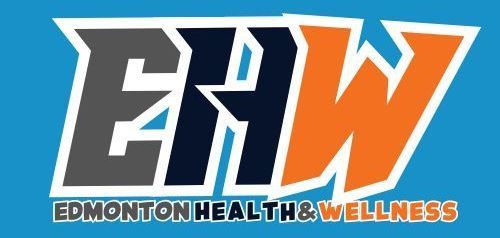How to Choose the Right Personal Trainer in Edmonton
Finding a Personal Trainer in Edmonton

When it comes to achieving your fitness goals, having the guidance and support of a personal trainer can make a world of difference. A personal trainer is not just someone who leads you through workouts; they are your partner in fitness, helping you navigate the challenges, providing motivation, and customizing a program that suits your individual needs. However, with the abundance of personal trainers available today, it's crucial to choose the right one who aligns with your goals, preferences, and personality. The decision to invest in a personal trainer is an investment in your health and well-being, so it's essential to do your due diligence and find the perfect fit.
Working with a personal trainer offers numerous benefits that can accelerate your progress and maximize your results. First and foremost, a personal trainer brings expertise and knowledge to your fitness journey. They are trained professionals who understand different exercise techniques, proper form, and effective training methods. This expertise ensures that you perform exercises correctly, reducing the risk of injury and maximizing the efficiency of your workouts. Additionally, a personal trainer can assess your fitness level, strengths, and weaknesses to create a customized program that addresses your specific goals and targets areas that need improvement. They provide personalized attention, guidance, and feedback, helping you stay on track and continuously challenging yourself to reach new heights. Moreover, a personal trainer can be a source of motivation, pushing you beyond your perceived limits and holding you accountable to your commitments. With their support and encouragement, you'll be more likely to stay consistent and motivated throughout your fitness journey.
The Read
- Assessing Your Fitness Goals
- Researching Personal Trainers
- Evaluating Experience and Expertise
- Compatibility and Communication
- Availability and Scheduling
- Cost and Budgeting
- Assessing Support and Accountability
- Trial Sessions and Feedback
- Making the Final Decision
Assessing Your Fitness Goals
Before embarking on your search for a personal trainer, it's essential to have a clear understanding of your fitness goals. Take some time to reflect on what you want to achieve and why it matters to you. Are you looking to lose weight, build muscle, increase endurance, improve flexibility, or enhance overall fitness? Defining your goals will help you find a personal trainer who specializes in the areas that align with your aspirations. Be specific and set measurable goals that can be tracked and evaluated along the way. For example, instead of saying, "I want to get fit," a more specific goal could be, "I want to lose 15 pounds in three months and increase my strength to squat my body weight."
Once you've identified your fitness goals, it's crucial to establish a realistic timeline and set milestones. This step will help you track your progress and stay motivated along the way. Discussing your timeline and milestones with potential
personal trainers can give you insight into their approach and whether it aligns with your expectations. Consider factors such as your current fitness level, lifestyle commitments, and any upcoming events or deadlines that may impact your progress. Breaking down your goals into smaller, achievable milestones can make the journey more manageable and rewarding. For example, if your ultimate goal is to run a marathon, you can set milestones such as completing a 5K race, then a 10K race, and so on, gradually building up your endurance. By having a clear timeline and milestones in mind, you can communicate your expectations to potential
personal trainers and ensure that they can provide the necessary support to help you reach your goals within the desired timeframe.
Researching Personal Trainers
One of the best ways to start your search for a personal trainer is by seeking recommendations from people you trust. Talk to friends, family members, or colleagues who have worked with personal trainers in the past and inquire about their experiences. They can provide valuable insights into the trainers they've worked with, their professionalism, expertise, and whether they helped them achieve their fitness goals. Personal recommendations offer a level of trust and firsthand knowledge that can guide you in finding a reputable and effective personal trainer.
The internet is a treasure trove of information when it comes to finding personal trainers. Utilize online directories and fitness websites that provide comprehensive listings of personal trainers in your area. These platforms often include detailed profiles, showcasing the trainers' qualifications, certifications, areas of specialization, and client reviews. Take the time to read through the trainers' profiles, paying attention to their experience, education, and any additional credentials they may have. Look for trainers who have certifications from reputable organizations, such as the National Academy of Sports Medicine (NASM), the American Council on Exercise (ACE), or the International Sports Sciences Association (ISSA). Reading client reviews and testimonials can provide valuable insights into the trainers' effectiveness, professionalism, and ability to connect with their clients. Additionally, many personal trainers have their websites or social media profiles, allowing you to explore their training philosophy, approach, and even see examples of their work with clients.
Evaluating Experience and Expertise
When selecting a personal trainer, it's essential to consider their level of experience in the industry. Look for trainers who have been working in the field for a significant amount of time and have a track record of helping clients achieve their goals. Experienced trainers have likely encountered a wide range of clients with different needs and challenges, giving them valuable insights and problem-solving skills. They have had time to refine their coaching techniques and adapt to various situations. While a less experienced trainer may still possess the necessary knowledge and skills, opting for someone with a proven track record can provide added confidence in their ability to deliver results.
Personal trainers often have areas of specialization or expertise. Consider whether the trainer's specialty aligns with your specific goals or needs. For example, if your goal is to improve your strength and power for a specific sport, you may want to seek out a trainer with a background in sports performance training. If you're recovering from an injury or have specific health considerations, finding a trainer with experience in rehabilitation or working with special populations may be crucial. Assessing their expertise in areas relevant to your goals ensures that they have the knowledge and skills to address your unique requirements effectively. Additionally, look for trainers who regularly update their skills and knowledge through continued education or certifications. This demonstrates their commitment to staying current in the field and their dedication to providing the best possible service to their clients. By evaluating experience and expertise, you can choose a personal trainer who possesses the necessary qualifications and knowledge to guide you towards your desired fitness outcomes.
Compatibility and Communication
Once you have narrowed down your list of potential personal trainers, it's crucial to meet them for an initial consultation. This meeting serves as an opportunity to gauge compatibility and assess their communication style. Pay attention to how comfortable you feel during the conversation. Do they listen attentively to your goals and concerns? Are they genuinely interested in understanding your needs? Building a strong rapport with your personal trainer is essential for a successful working relationship. You should feel comfortable expressing your thoughts, asking questions, and seeking clarification. The initial consultation allows you to get a sense of their personality and coaching approach. Some individuals may prefer a trainer who is tough and pushes them to their limits, while others may prefer a more nurturing and supportive style. By meeting potential trainers in person, you can determine if their coaching style aligns with your preferences and if you feel motivated and inspired by their approach.
Personal training is more than just exercise guidance; it's about building a supportive and motivating relationship with your trainer. Consider the personal trainer's personality and coaching methods when making your decision. Do they have a positive and encouraging attitude? Are they able to adapt their coaching style to suit your preferences and learning style? A good personal trainer understands that each client is unique and may require different approaches to achieve their goals. They should be able to communicate effectively and tailor their instructions to your needs, whether you respond best to visual cues, detailed explanations, or hands-on demonstrations. Additionally, consider their level of professionalism and reliability. A personal trainer should be punctual, respectful of your time, and dedicated to helping you succeed. By assessing compatibility and communication, you can ensure that your personal trainer becomes not only a fitness guide but also a trusted ally in your fitness journey.

Availability and Scheduling
Availability and scheduling are important factors to consider when choosing a personal trainer. You need to ensure that their availability aligns with your preferred workout times. Talk to the personal trainer about their schedule and inquire about their availability during the times that work best for you. Some trainers may have limited availability due to a high demand for their services, so it's important to communicate your scheduling needs early on. Additionally, discuss the frequency and duration of training sessions. Determine how many sessions per week you'll be able to commit to and ensure that the trainer can accommodate your desired training frequency. Clear communication about availability and scheduling from the beginning can help you avoid conflicts or disappointments down the road.
It's also crucial to clarify the personal trainer's policies regarding cancellations and rescheduling. Life can be unpredictable, and there may be instances when you need to cancel or reschedule a session. Understand the trainer's policy regarding such situations, including any fees or notice requirements. Some trainers may have a specific window within which cancellations or rescheduling requests must be made, while others may have a more flexible policy. Ensure that you are comfortable with their policies and that they align with your needs and flexibility. By having a clear understanding of their cancellation and rescheduling policies, you can establish a mutually beneficial working relationship that accommodates unexpected changes while still allowing for consistency and progress in your training program.
Cost and Budgeting
Cost is an important consideration when selecting a personal trainer. Personal training rates can vary significantly based on factors such as the trainer's experience, expertise, location, and the services they offer. Take the time to understand the personal trainer's pricing structure. Some trainers charge an hourly rate, while others may offer package deals or monthly subscriptions. Ask about the payment methods they accept and whether they offer any discounts or promotions for long-term commitments. It's essential to have a clear understanding of the financial investment required to work with a particular trainer and ensure that it aligns with your budget.
While cost shouldn't be the sole determining factor in choosing a personal trainer, it's beneficial to compare the costs with other trainers in your area. Research and gather information on the pricing of several trainers and evaluate the value you'll be receiving for the cost. Consider factors such as the trainer's qualifications, experience, specialization, and the level of personalized attention they provide. A higher-priced trainer may offer additional services, such as nutritional guidance or regular progress assessments, which can contribute to the overall value. On the other hand, a lower-priced trainer may still provide quality training without the additional frills. It's important to strike a balance between cost and the level of expertise and support you require. By comparing costs and assessing the value provided, you can make an informed decision that fits within your budget while still ensuring you receive the level of training and support needed to reach your goals.
Assessing Support and Accountability
Support and accountability are crucial elements of a successful personal training experience. Inquire about the additional support that a personal trainer provides outside of the scheduled training sessions. Some trainers may offer resources such as workout plans, nutritional guidance, or access to online platforms where you can track your progress. This additional support can be valuable in helping you stay on track and make progress between sessions. Ask the trainer about their availability for questions or concerns outside of the training sessions and how they typically provide ongoing support to their clients. Understanding the level of support they offer can help you assess whether they will be accessible and responsive to your needs throughout your fitness journey.
Effective personal trainers understand the importance of tracking progress and monitoring results. During your initial consultations, discuss the methods and tools that the trainer utilizes to track your progress. This may include periodic assessments, body measurements, or performance tests to evaluate your advancements. Tracking progress allows both you and the trainer to see tangible results, make necessary adjustments to the training program, and celebrate milestones along the way. Additionally, inquire about the trainer's approach to goal setting and how they help clients stay accountable. A good trainer should have strategies and systems in place to keep you motivated, monitor your adherence to the program, and address any challenges or setbacks that arise. By assessing the level of support and accountability offered, you can select a personal trainer who will provide the guidance and resources necessary to help you achieve your goals and maintain long-term success.
Trial Sessions and Feedback
Many personal trainers offer trial sessions or introductory packages to allow potential clients to experience their training style and determine if it's a good fit. Taking advantage of these trial sessions can provide valuable firsthand experience of working with the trainer. Pay attention to how they structure the session, their coaching style, and their ability to explain exercises and provide feedback. Use this opportunity to assess their level of professionalism, knowledge, and how well they tailor the workout to your needs. Trial sessions also allow you to gauge your comfort level with the trainer and see if there is a good rapport and communication dynamic. By participating in trial sessions, you can make a more informed decision about whether the trainer's approach aligns with your preferences and goals.
Feedback is a vital component of the client-trainer relationship. During the trial sessions or initial training sessions, provide feedback to the trainer about your experience. Be open and honest about what you enjoyed, what you felt could be improved, and any specific areas of focus or modifications you need. Good trainers will appreciate your feedback and use it to tailor their approach and better meet your needs. Additionally, don't hesitate to ask for feedback from the trainer regarding your performance, form, and progress. Regular feedback helps you track your improvements, identify areas for further development, and stay motivated. By fostering a culture of open communication and feedback, you can establish a collaborative partnership with your personal trainer that fosters continuous growth and progress.
Making the Final Decision
Making the final decision on choosing a personal trainer requires careful consideration of all the factors discussed above. Reflect on the information gathered during your research, consultations, and trial sessions. Consider the trainer's experience, expertise, availability, communication style, and support provided. Evaluate their compatibility with your goals, preferences, and personality. Take into account the cost and value offered, comparing it with other trainers in the area. Additionally, think about the level of support and accountability they provide, as well as their approach to tracking progress and goal setting. By weighing the pros and cons of each trainer based on these factors, you can make an informed decision that aligns with your needs and sets you up for success.
While it's important to analyze the objective factors when choosing a personal trainer, it's equally important to trust your instincts and gut feeling. Pay attention to your intuition and the connection you feel with the trainer. Ask yourself if you genuinely believe they will support and motivate you throughout your fitness journey. Consider whether you feel comfortable, heard, and understood during your interactions. Your intuition can often provide valuable insights into whether a personal trainer is the right fit for you. Remember, the client-trainer relationship is built on trust and rapport, so it's essential to choose a trainer whom you genuinely believe will guide and empower you to achieve your goals.
By carefully considering all the factors and trusting your instincts, you can confidently make the final decision on choosing the right personal trainer for your needs. Remember, finding the right trainer is an investment in your health and well-being, so take the time to make a thoughtful choice that will set you on the path to success.
Steps to Finding the Right Trainer
- Assess Your Fitness Goals
Define your goals before searching for a trainer. Are you aiming to lose weight, improve flexibility, increase strength, or recover from an injury? By being specific, you can find a trainer whose specialties align with your needs. - Research Local Trainers
At Edmonton Health and Wellness, we have trainers with diverse specializations, from strength training to rehabilitation. Look for trainers with certifications from reputable organizations such as NASM, ACE, or ISSA, and read client reviews to gain insights into their approach and effectiveness. - Evaluate Their Expertise
Experienced trainers bring a wealth of knowledge to your sessions. Whether you're focused on improving endurance or recovering from an injury, our trainers have the experience to design effective programs tailored to you. - Compatibility and Communication
It’s essential to feel comfortable with your trainer. Our team emphasizes clear communication, ensuring you feel heard and understood. Whether you prefer a motivational style or a calm, guiding approach, our trainers adapt to your preferences. - Consider Scheduling and Cost
At Edmonton Health and Wellness, we offer flexible scheduling to accommodate busy lifestyles. Discuss pricing and packages upfront to ensure your investment fits within your budget.
Why Choose Edmonton Health and Wellness?
At Edmonton Health and Wellness, our trainers are dedicated to helping you achieve your goals. Whether you’re a busy professional, an active parent, or recovering from an injury, we offer customized programs designed for success.
- 💪 Diverse Specialties: Our trainers are experts in rehabilitation, strength training, weight loss, and overall wellness.
- 🕒 Flexible Scheduling: We understand that life gets busy. Our trainers work with you to find convenient times for sessions.
- 💡 Holistic Approach: Beyond physical training, we support your mental and emotional well-being, ensuring a comprehensive health experience.
Take the First Step Today
Choosing the right personal trainer is a crucial step toward a healthier, stronger you. At Edmonton Health and Wellness, we’re committed to providing expert guidance, personalized care, and unwavering support to help you reach your fitness goals.
📞 Call us today at 587-412-5173
to schedule your initial consultation.
💻 Visit
www.edmontonhealthandwellness.com to explore our services and fill out our quick consultation form.
✨ Special Offer: Mention this blog post and receive your $100 Initial Visit Voucher for a personalized session with one of our trainers.
Take the first step toward unlocking your potential. Let us guide you on your journey to a healthier, happier you!










